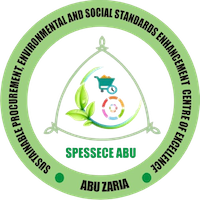
Academic offerings include 95 majors, 86 minors, and more than 100 in-major specializations
The aim of this programme is to produce procurement experts whose skills will improve governance and efficiency,
enhance the efficiency and effectiveness of service delivery and improve value for money in private and public expenditure.
The objectives of the programme are to:
Majority of procurement officers serving in various government ministries, departments and agencies at state and Federal levels do not have relevant qualifications that would allow to register for master’s programme in Procurement. Similarly, there are several candidates whose first degrees are not in procurement and may wish to take-up career in procurement. This necessitates the establishment of a PGD in procurement management to serve as a bridge that would enable such candidates gain admission into higher degrees in Procurement.
This programme targets procurement officers currently serving in various government ministries, departments and agencies at state and Federal levels. These are experts whose primary qualification is not in procurement and may wish to advance their qualifications at master level. It also envisaged that graduates with keen interest in procurement whose first degrees are not in procurement would join the programme.
To gain admission into the PGD Procurement management, applicants must hold:
The duration of the programme shall be Eighteen months comprising of two (2) semesters in one (1) session.
In order to obtain a PGD in Procurement Management, student must earn a minimum of 24 credit units including 4-credit units elective courses (2-units every semester). In addition, student must prepare a project report on an approved topic.
Courses shall be delivered using the blended method (both physical and virtual participation) Each taught course shall be assessed by a combination of course examination and coursework assignments. The course examination accounts for 60 per cent of the total course marks and the coursework assignments accounts for 40 per cent of the total course marks. The minimum pass mark is 50 per cent in each course. In the case of project/dissertation, students must achieve at least 50 per cent, in accordance with the rules of the Postgraduate School.
Table shows the physical facilities that will support the proposed program. The program would be supported by facilities in the Department of Quantity Surveying and at the Centre’s Building
| SN | Facility | Number Available | Capacity |
|---|---|---|---|
| 1 | Lecture Halls | 1 | 65 |
| 2 | Lecture Rooms | 1 | 40 |
| 3 | Seminar Rooms | 1 | 65 |
| 4 | Computer Laboratory | 1 | 65 |
| 5 | Library | 1 | 65 |
| 6 | Offices | 6 | 15 |
| 7 | Power Generating Set | 1 | - |